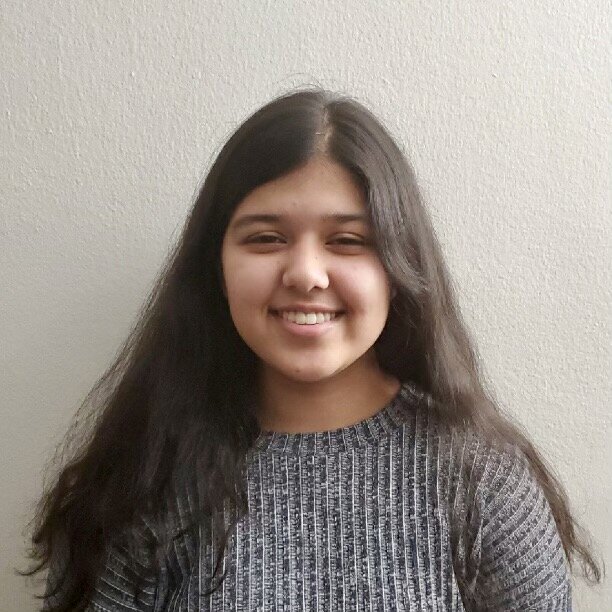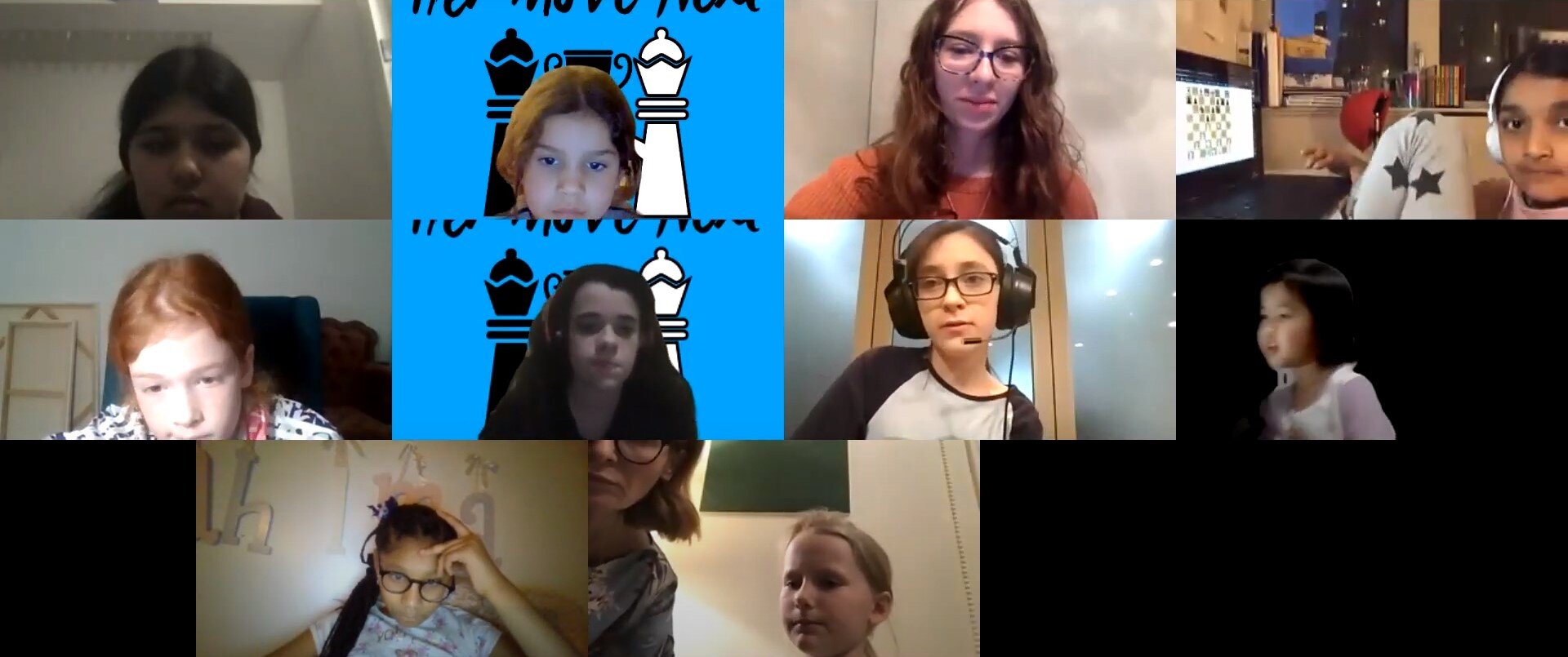Zara: Switching from Player to Mentor
Zara Shah: “. I learned a great deal about coaching and myself. Going forward, I hope to continue to coach and play a role in young girls’ chess experiences.”
BY ZARA SHAH - THE SPENCE SCHOOL - COACH & COLUMNIST
Zara Shah
I have had a passion for chess from a young age. Playing chess competitively has allowed me to make many special memories. Attending chess classes, camps, and tournaments with friends will always hold a special place in my heart. I hope that every kid gets to experience something similar in their own way at some point. Witnessing this happen to others first-hand would be memorable. This is why I was excited to attend and coach at the Her League Event. The past year has created a time of change and adaptation. Chess tournaments have been happening online, but the experience is extremely different than that of normal, in-person tournaments. So, I appreciated the fact that the Her Move Next tournament was still able to replicate the feeling of community and being involved in a team. It was without a doubt different being on the other side of the tournament and games, but nonetheless it was a fun event to be part of.
Going into the tournament, I was nervous about coaching because I had never done anything remotely close to it and I did not know what to expect. These nerves were quickly dismissed when I entered. Everyone involved in Her Move Next was welcoming and I felt comfortable.
The energy created in the breakout room before the start of the games was unique. The girls were all excited. Some were joyful to be able to play in a tournament after a while. Others, on the other hand, were participating in their first ever chess tournament.
After the girls had played their games, I had the opportunity to review their games. I found this to be very compelling for several reasons. First, it was interesting to see how the girls would react to feedback and the pressure of competitive chess. I remember being in their shoes and going over my games during my first couple of tournaments. I recall being nervous of what my coach would say. I would wonder if I was playing the right or wrong moves. I would wonder if I was thinking of good ideas or missing obvious wins. These thoughts could be overwhelming at times. Having these memories impacted the way in which I talked to the players. It is important to compliment them and increase their confidence in their chess abilities. Similarly, it is also important to suggest ways in which they can improve so that they can choose to push themselves and get better. This is a representation of some of my thoughts during the tournament.
Secondly, it was interesting to see the types of games young girls were playing. Their mindset is wildly different than mine. They, furthermore, have different motivations and intentions while playing. For example, many of the girls focused on winning material rather than creating and furthering weaknesses in their opponent’s position. Seeing them come up with ideas and executing them in their own way was almost educational for me.
Thirdly, it was interesting to see the girls interact with each other and watch each other's games being gone over. If I was going over a game, for example, the other girls would watch, learn and sometimes even provide their own input. Like I mentioned before, a significant aspect of chess tournaments is being included in a team. Being on a team allows you to give and receive support, regardless of the outcome of each game. The last year with COVID-19 has taken the sense of community away from chess tournaments. This tournament, however, was able to include this important aspect back into tournaments. The girls would congratulate one another in times of a win and motivate each other in times of a loss.
Overall, being a Her League coach and attendee was a distinctive experience. I learned a great deal about coaching and myself. Going forward, I hope to continue to coach and play a role in young girls’ chess experiences.
Zara Shah coaching in Her League 1

